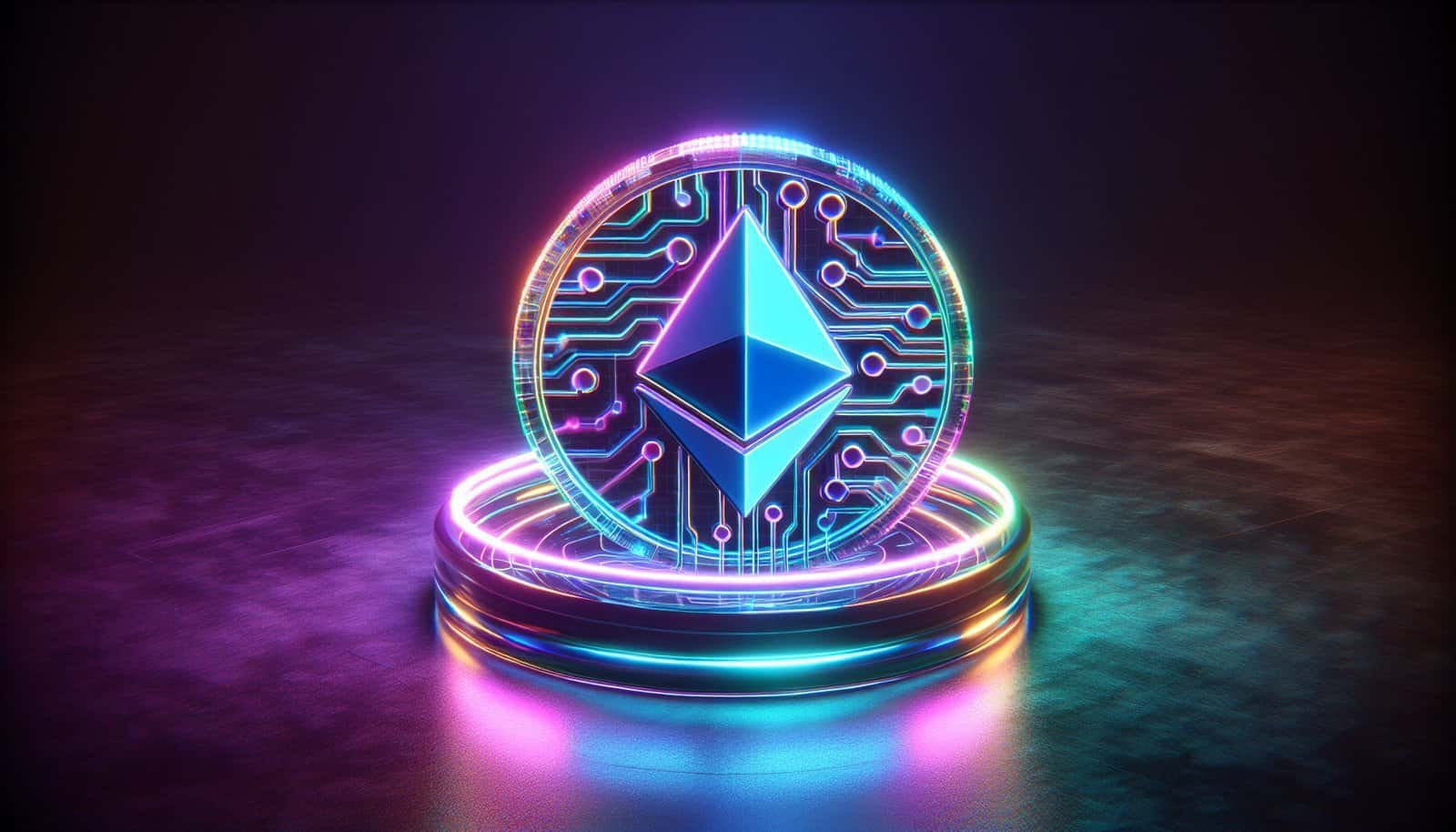Have you ever wondered how a platform that started on one blockchain grew into a hub that connects collectors, creators, and game developers across multiple chains?

Magic Eden – Originally Solana-focused, Now A Leading Cross-chain Marketplace For NFTs And Gaming Assets
You’re looking at a platform that began with a tight focus on Solana NFTs and then broadened into a cross-chain marketplace that supports a variety of non-fungible assets, including gaming items. This article walks you through Magic Eden’s journey, what it offers you now, and how to use it safely and effectively.
What Magic Eden Is and Why It Matters
You’ll find Magic Eden positioned as a full-featured NFT marketplace that supports buying, selling, minting, and discovering digital assets. It’s built to serve collectors, creators, and game developers who need a marketplace that can handle multiple blockchains and asset types.
You’ll appreciate that Magic Eden emphasizes usability and community, aiming to reduce friction for users who want to interact with NFTs and play-to-earn or play-and-own gaming systems. The platform has added features and partnerships that reflect the broader growth of the NFT and gaming ecosystems.
Core service offering
Magic Eden provides primary and secondary market listings, collection storefronts, collection launches (launchpads), minting tools, and tools to support gaming-related marketplaces. These features let you participate as a buyer, seller, or creator with relative ease.
You’ll also find integrations with wallets, support for different token standards, and filtering/search tools to help you find high-quality projects or specific assets quickly.
Origins: Solana-first Focus
When Magic Eden first launched, it focused on Solana’s NFT ecosystem to give you low-fee, fast transactions for minting and trading. Solana’s performance characteristics made it a natural starting place for a marketplace seeking to provide an affordable and responsive experience.
Because it started on Solana, Magic Eden cultivated relationships with Solana-native projects and communities. That early specialization also helped the platform refine UX patterns around collection discovery and mint mechanics.
Why starting on Solana mattered
You benefited from lower gas fees and faster transaction finality compared with many EVM-based chains when using Magic Eden on Solana. That helped make smaller mints and frequent trades more practical than they might’ve been on higher-fee networks.
This environment supported experimentation with new project launches and gaming integrations, letting creators iterate on tokenomics and distribution without prohibitive costs.
Transition to Cross-chain Support
Magic Eden expanded beyond Solana to support EVM chains and other layer-2s so you can access a broader range of creators and gaming ecosystems from a single interface. That shift lets you trade assets that live on different blockchains without needing to use multiple marketplaces.
This transition required adding support for distinct token standards, wallet types, and user flows. The platform’s roadmap included adding cross-chain listings, bridging integrations, and partnerships to make multi-chain activity smoother for you.
Which chains and token standards are supported
Magic Eden supports multiple chains and common NFT standards, so you can work with Solana SPL tokens, Ethereum ERC-721 and ERC-1155 tokens, and other chain-specific formats. Support may expand over time as the team integrates additional chains.
You’ll typically use wallets compatible with each chain (for example, non-custodial wallets for Solana vs. MetaMask for EVM chains), and Magic Eden exposes UI elements to switch chains and wallets as needed.

How Magic Eden Handles Gaming Assets
Magic Eden added marketplace features specifically designed for gaming items to accommodate in-game assets, skins, and tokens that represent ownership and utility. That helps you trade consumables, characters, or special items built for blockchain games.
You’ll find gaming-related collections and partnerships on the platform, as well as tools that allow game developers to list items in ways that reflect rarity, functionality, and integration with the game itself.
Benefits for game developers and players
Game developers can use marketplace features to distribute assets, reward players, and monetize virtual economies. As a player, you gain the ability to buy, sell, and own assets that can be used across games or within a game’s economy.
Magic Eden’s support of gaming assets also opens up secondary markets, allowing you to realize value from time spent in games or to invest in assets with potential future utility.
Key Features You’ll Use
Magic Eden offers an array of features that matter whether you’re a collector, creator, or game developer. These include minting, collection launchpads, royalties and creator tools, advanced search and filters, and cross-chain listings.
You’ll also find curated drops and promotional spots that help high-quality projects gain visibility. The platform continuously iterates on its UX to reduce friction around wallet connections, signing transactions, and listing items.
Minting and Launchpads
You can mint NFTs directly on Magic Eden or participate in drop launchpads that help creators release new collections to their audiences. These tools are geared to make the minting process accessible while supporting the discovery of new projects.
Launchpads often include whitelisting, allocation mechanics, and scheduling features that let creators plan how their drops will release and how you’ll participate if you hold a whitelist spot or pass the criteria.
Search, filters, and discovery
A robust search and filter system helps you narrow down assets by rarity, traits, price ranges, activity, and more. You can follow collections, set alerts for price changes, and use sorting features to prioritize what matters to you.
This makes it easier to find specific NFTs, discover underpriced assets, or monitor trending projects without manually scrolling through many listings.
Wallet integrations and account setup
Magic Eden supports popular wallets used across supported chains, allowing you to connect your non-custodial wallet, view holdings, and sign transactions. You won’t need to create a traditional username/password account if you prefer connecting via wallet.
Make sure you use the right wallet for the chain you’re interacting with (for example, Phantom or Solflare for Solana, MetaMask for Ethereum and EVM chains) and confirm the network selected in your wallet matches Magic Eden’s UI.

Fees and Monetization (What You Should Know)
Magic Eden’s marketplace balances platform fees, creator royalties, and blockchain transaction costs to deliver revenue to creators and pay for platform operation. The specifics can vary by chain and by the collection’s royalty settings.
You’ll pay on-chain gas fees where applicable, and Magic Eden may charge a marketplace fee or take a cut depending on which blockchain and listing type you use. Check the current fee structure for the chain you’re using before confirming transactions.
Creator royalties and enforcement
Magic Eden supports creator royalties on many chains, but enforcement depends on the technical means of the chain and marketplace policies. When royalties are enforced, sellers will automatically route a percentage of resale proceeds to the creator.
Because royalty enforcement varies by chain and by marketplace settings, you should verify the royalty rules for a collection before buying or listing items if this is important to you.
Security and Trust: How to Protect Yourself
You should always take basic precautions when interacting with NFT marketplaces to protect your funds and assets. This includes using hardware wallets for significant holdings, verifying collection contract addresses, and avoiding suspicious links or wallet permissions.
Magic Eden includes features for verifying collections and highlighting official storefronts, but scams still exist. Treat any unsolicited mint links, airdrop claims, or requests to sign unusual transactions with caution.
Wallet best practices
Use a hardware wallet for large holdings and make sure your seed phrase never leaves an offline environment. Use separate wallets for different activities if you want to limit exposure (for example, a hot wallet for small purchases and a cold wallet for valuables).
Always confirm the recipient address in your wallet before approving any transaction and be cautious of wallet-permission requests that ask for excessive approvals.
Recognizing fakes and scams
Check the official collection page on Magic Eden, cross-reference the contract address on a block explorer, and look for community verification signals like blue checks or team announcements. If a collection’s metadata or links are inconsistent with official channels, treat it as suspect.
Never sign transactions that grant unlimited approval to a contract unless you understand the implications. If you accidentally grant broad approvals, you can revoke them via wallet management tools or block explorers.

How to Buy, Sell, and List NFTs on Magic Eden
You’ll find buying, selling, and listing processes are straightforward once your wallet is connected. The platform walks you through listing steps and often pre-fills suggested prices based on recent sales data.
Before buying, confirm you’re on the correct chain and that the asset’s metadata matches the collection. When selling, ensure you set a clear price, enable royalties if desired, and choose the right market (auction vs. fixed price).
Step-by-step: Buying an NFT
- Connect your wallet to Magic Eden and ensure it’s configured for the correct blockchain.
- Browse or search for a collection or specific item you want to buy.
- Click “Buy Now” or place a bid if it’s an auction listing.
- Confirm the transaction in your wallet, checking the gas or fee amounts.
- Wait for the transaction to confirm and verify the asset appears in your wallet.
These steps will be similar across chains, though the wallet UI and gas behaviors will vary by blockchain.
Step-by-step: Listing an NFT for sale
- Connect the wallet that holds the NFT and navigate to your profile or collection.
- Select the item and choose “List for Sale.”
- Choose fixed price or auction, set the price, and optionally configure expiration or reserve settings.
- Confirm any required approvals via your wallet (this may be a one-time approval per contract).
- Finalize the listing and monitor offers or sales activity.
Understanding approvals and one-time transactions can save you from unnecessary gas costs later.
For Creators and Project Launches
As a creator, you can use Magic Eden to mint collections, run drops, and use launchpad services that help with exposure. The platform often provides guidance and tooling to handle metadata, rarity tiers, and mint mechanics.
You should plan your mint economics, supply, and distribution carefully. Community engagement (through social media and Discord) and clear documentation about utility and roadmap are key to a successful launch.
Minting considerations
Decide on mint price, supply cap, whitelist mechanics, and gas considerations. Test your mint contract and metadata hosting to ensure the mint experience is smooth for collectors.
Transparency about royalties, future plans, and what owners can expect from ownership (utility, governance, access) will help you maintain trust with buyers.
Launchpad and promotions
Magic Eden’s launch features help projects reach collectors through curated listings and mint pages. If you want higher visibility, follow the platform’s requirements and submission guidelines carefully.
You’ll usually need to demonstrate legitimacy, roadmap viability, and community support to be considered for featured placement or promotional campaigns.

Cross-chain Technical Considerations
Working cross-chain introduces different token standards, bridges, and wallet behaviors that you need to understand. Magic Eden’s UI abstracts many differences, but you’re still responsible for making sure assets are on the chain you intend to transact on.
Bridging assets between chains can carry risks, including smart contract vulnerabilities and price slippage. Use trusted bridges and understand the bridge’s security assumptions before moving assets.
Token standards and your expectations
- Solana: SPL tokens (used for NFTs and fungible tokens on Solana).
- Ethereum/EVM chains: ERC-721 and ERC-1155 standards for NFTs and semi-fungible assets.
- Other chains/layer-2s have their own standards but often map to ERC or SPL-like behaviors.
You’ll notice differences in metadata storage, approval flows, and wallet UX based on the token standard and chain chosen.
Bridges and custody implications
Bridging often requires locking an asset on the source chain and minting a wrapped representation on the target chain. This introduces trust in the bridge’s smart contracts and custodial model.
Before bridging, research the bridge, confirm audits if available, and consider whether the benefit of cross-chain access outweighs the risks.
Fees and Gas Optimization Tips
You should anticipate variable gas costs depending on the chain and the transaction type. Solana usually offers low per-transaction costs, while Ethereum gas can be high during congestion.
To optimize fees, transact during lower network activity, batch approvals where appropriate, and consider layer-2 or alternative chains for frequent activity. For minting, watch for gas estimation tools and consider using a gas token or fee estimation strategy.
Practical fee-saving tips
- Use Solana or Layer-2s for small or frequent transactions.
- Pre-approve marketplace contracts selectively to avoid repeated approvals.
- Time transactions for lower network activity windows where possible.
These strategies can reduce costs for collectors and creators, making it easier to experiment with new projects.
Community and Ecosystem Partnerships
Magic Eden’s growth is tied to community engagement and strategic partnerships with projects, studios, and other crypto infrastructure providers. You’ll often find events, partnerships, and promotions that boost visibility for new drops.
Being an active community member (on Discord, X/Twitter, and other channels) helps you stay informed about upcoming drops, whitelist opportunities, and security notices.
How to verify project legitimacy through community
Look for transparency from project teams, clear links between the project’s website and the marketplace contract, and active, constructive community discussion. Authentic projects typically provide team bios, roadmaps, and third-party verifications.
If a project has multiple community members reporting consistent issues or conflicting claims, treat it as a warning sign and research deeper before committing funds.
Comparing Magic Eden with Other Marketplaces
You’ll want to know how Magic Eden stacks up against alternatives in terms of chain support, fees, discovery, and gaming focus. Below is a comparison table that highlights typical features to consider.
| Feature | Magic Eden | Other Marketplaces (Examples) |
|---|---|---|
| Multi-chain support | Yes — Solana + EVM chains and more | Varies — some focus on Ethereum, others on single chains |
| Gaming asset focus | Growing emphasis and tooling | Varies — some dedicated gaming marketplaces exist |
| Minting and launch tools | Yes, with launchpad features | Yes, variable quality and support |
| Discoverability & curation | Strong curation for Solana and growing for other chains | Varies; some have extensive discovery tools |
| Wallet integrations | Multiple wallets (chain-specific) | Multiple wallets, but often focused on EVM wallets |
| Fee & royalty handling | Platform fee + royalties (varies by chain) | Platform-specific; royalties vary by marketplace |
This table helps you prioritize what matters: chain coverage, game integration, fees, or discovery tools.
Practical Checklist for Your First 10 Transactions
To help you get started correctly, here’s a compact checklist that you can follow for the first ten buys or sells you make on Magic Eden:
| Step | Action |
|---|---|
| 1 | Connect the correct wallet and verify the network. |
| 2 | Confirm the collection contract address via the project’s official links. |
| 3 | Review the asset’s metadata and provenance history. |
| 4 | Check the marketplace fees and on-chain gas estimates. |
| 5 | For buying, verify the seller’s listing and recent sale history. |
| 6 | For selling, ensure royalties and pricing are set correctly. |
| 7 | Use a small test transaction if you’re unsure about the flow. |
| 8 | Avoid signing bulk-permission transactions until necessary. |
| 9 | Keep records of receipts and transaction hashes for provenance. |
| 10 | Revoke unnecessary approvals periodically via wallet tools. |
Following this checklist reduces the chance of mistakes and helps you learn the platform’s nuances.
Common Pitfalls and How to Avoid Them
You’ll encounter recurring pitfalls like connecting to phishing sites, approving malicious contracts, or mistaking wrapped tokens for native ones. Awareness and procedural checks can prevent most losses.
Before signing or approving anything, pause and confirm the URL, contract addresses, and transaction details. When in doubt, use block explorers and community channels to validate the transaction or listing.
Example pitfalls and fixes
- Mistake: Approving an unlimited allowance for a risky contract. Fix: Approve minimal allowances and revoke unneeded approvals later.
- Mistake: Buying a counterfeit NFT with similar visuals. Fix: Verify contract addresses and collection verification badges.
- Mistake: Bridging through an unaudited bridge. Fix: Use well-known bridges with audits and community trust.
These small habits keep you safer in a space where transactions are irreversible.
Governance, Regulation, and the Future of Cross-chain Marketplaces
You should be aware that regulation, tax requirements, and platform policies can change how NFT marketplaces operate. Cross-chain marketplaces like Magic Eden may adapt features and compliance mechanisms to meet evolving legal standards.
As the market evolves, expect improvements in interoperability, standardized royalty enforcement techniques, and enhanced tooling for gaming asset integration. You’ll benefit from a broader, more connected ecosystem but also need to stay informed about changing rules.
What to watch for moving forward
Keep an eye on cross-chain standards, bridge security improvements, clearer royalty enforcement protocols, and platform-level features for gaming economies. These developments will shape how easily you can move value between games and marketplaces.
Regulatory clarity in major jurisdictions will also influence how marketplaces operate, particularly around KYC, taxation, and secondary-market reporting.
Frequently Asked Questions (Short)
You’ll likely have common quick questions when using Magic Eden; these short answers will help:
- How do I change chains? Make sure your wallet is configured for the target chain and use the chain selector in the Magic Eden UI if applicable.
- Can I use the same wallet for multiple chains? Some wallets support multiple chains, but you’ll need to switch networks and ensure the wallet accounts are configured for each chain.
- How are royalties enforced? Enforcement depends on chain-level capabilities and marketplace policies; verify collection-specific settings.
- Is Magic Eden safe? It’s a reputable marketplace, but you must still follow security best practices to avoid scams and phishing.
If you want help with any specific step (wallet setup, minting, listing, or bridging), you can ask for targeted instructions.
Final Thoughts and Practical Recommendations
You’re looking at a marketplace that successfully evolved from a single-chain focus to a cross-chain platform because it met user needs for low fees, faster transactions, and accessible tools. Magic Eden’s growth reflects the broader push toward interoperable NFT ecosystems and the increasing importance of gaming assets in the NFT economy.
To get the most out of Magic Eden:
- Use the right wallet for each chain and protect your seed phrases.
- Verify collection addresses and project legitimacy before transacting.
- Keep transactions small when testing new flows.
- Engage with community channels for updates, security notices, and whitelist opportunities.
If you follow these recommendations, you’ll be better positioned to take advantage of cross-chain NFT markets and the expanding world of blockchain gaming. If you want, I can walk you through a step-by-step example of connecting a specific wallet and buying your first NFT on Magic Eden.
